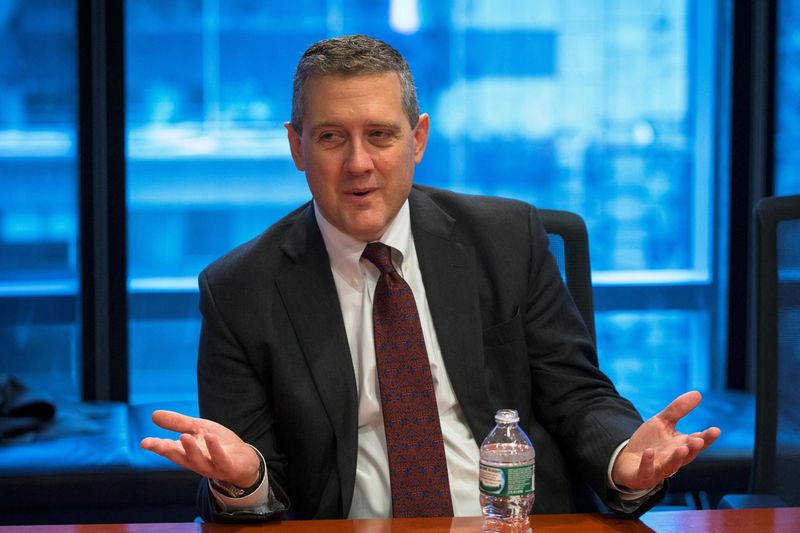(Reuters) - The Federal Reserve needs to raise interest rates quite a bit further and then hold them there throughout next year and into 2024 to gain control of inflation and bring it back down toward the U.S. central bank's 2% goal, St. Louis Fed President James Bullard said on Monday.
"We've got a ways to go to get restrictive," Bullard said in an interview with MarketWatch, as he restated his conviction that the Fed's target policy rate needs to rise to at least a range between 5.00% and 5.25% from the current level of 3.75%-4.00% to be "sufficiently restrictive" to reduce inflation.
Once at a high enough level, rates would then "have to stay there all during 2023 and into 2024" given the historical behavior of inflation, Bullard said.
The Fed has raised its policy rate by 375 basis points this year, the fastest pace of tightening since the early 1980s as it tries to quash stubbornly high inflation. By the central bank's preferred measure, inflation is running at more than three times the Fed's target.
"We want to get this inflation under control much sooner than in the 1970s," Bullard said, noting that he prefers to get the policy rate up in short order to create the conditions for price pressures to ebb throughout next year.

However, Bullard also repeated comments made earlier this month that he would defer to Fed Chair Jerome Powell regarding how much higher to move rates at upcoming policy meetings.
Investors overwhelmingly anticipate the Fed to raise its policy rate by half a percentage point at its next policy meeting on Dec. 13-14.